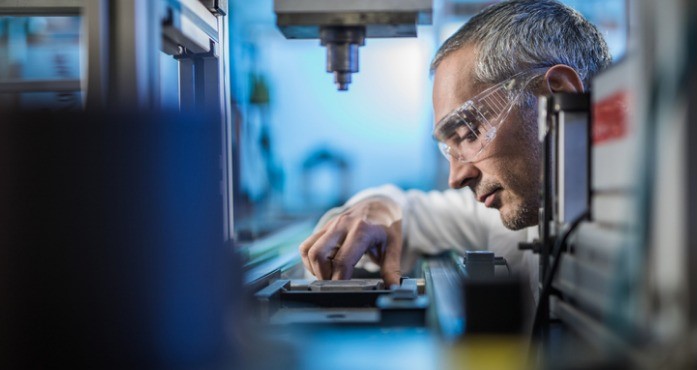

Quality assurance plays a
crucial role throughout the product/drug life cycle from research and design
through to manufacturing and distribution. It serves to ensure patient safety
and the efficacy of the product and without it, a product will not reach the
market. Recently, there been a notable increase in demand for certain quality
assurance jobs within pharma manufacturing. The biggest drivers of the increase
in demand for these skillsets are the actions by regulatory bodies and recent
geo-political events.
So called ‘remediation
projects’ are on the rise, along with drug GMP warning letters which have
increased from 25 in 2015 to 114 in 2017, and this trend is expected to continue.
Qualified consultants with experience in remedial work in a remediation or consent
decree environment are in very high demand, particularly those skilled in
manufacturing deviations, implementing corrective action and preventive actions
(CAPA) or validating equipment.
As experts in quality assurance
recruitment, Proclinical has found that the following QA jobs in pharma
manufacturing are the most in demand right now:
CAPA Consultant
Pharmaceutical companies
must make patient safety the utmost priority, keeping CAPA professionals in
constant demand. CAPA consultant jobs involve determining the root cause of a
non-conformity that has been detected in a manufacturing facility. Once
information has been collected and analysed, they will carry out the corrective
(to prevent recurrence) or preventive (to prevent occurrence) action to
eliminate the issue. The role of CAPA is also important in ensuring the
facility’s quality continuous improvement. A successful CAPA consultant must be
efficient, organised and have strong analytical skills with excellent attention
to detail.
Deviation Investigator
Possibly the most in
demand skillset in pharma manufacturing is deviation investigators, who are investigational
technical specialists. Deviation investigator jobs involve analysing and
interpreting deviation events, and using their judgment and expertise to inform
decisions on how to correct the issue. They will assist with identifying,
managing and implementing CAPAs. Often deviation investigators will deal with
multiple deviation investigations at once as they are common occurrences in a
manufacturing facility. It’s crucial that deviations are addressed in a timely
manner as they are often critical, and a pattern of failures will be picked up
during FDA inspections. Deviation investigators are subject matter experts with
a systematic approach and excellent analytical skills.
Quality Auditors (GMP)
Quality auditors play a
critical role in manufacturing facility’s output capacity, ensuring they are
always in high demand. Quality auditor jobs are principally concerned with
planning, executing and analysing audit projects to ensure that manufacturing
processes are compliant with regulatory guidelines and specific specifications.
They must report and issues, errors and trends discovered during audits to the
relevant manager/director. Quality auditors are there to reduce errors and
improve process performance to help company’s prepare for inspections by
regulatory bodies such as the FDA. Successful quality auditors are excellent
communicators, highly organised and have exceptional attention to detail.
Validation Engineer
Validation engineer jobs
are in great demand across most life science industries, not just within pharma.
Validation plays an important role within manufacturing as it helps safeguard
patient safety by ensuring manufacturing and quality control equipment,
processes and software work as they should and meet regulatory standards. Validation
engineers usually have a degree in pharmaceutical, automation, mechanical or
chemical engineering and have in depth knowledge of both the product/drug and
the equipment, process or software that they are testing.
Qualified Person (QP)
Qualified Persons have
historically always been highly in demand because they play an
important role in pharmaceutical manufacturing. A QP is required by every manufacturing site for commercial, and since
the 2004 IMP release, all sites must have a QP on their Manufacturing
Authorisation licence.
A QP is legally responsible
for ensuring that products and manufacturing processes are fully compliant, as
they sign off each product batch. They must have an understanding of
pharmaceutical laws, regulations and administration, and also of quality
management systems, manufacturing and supply chain. A qualified person must be
confident to make informed judgements and be decisive and calm when dealing
with uncertain situations or ‘grey areas’ of legislation.
The
training process for QPs is a difficult and elongated process with only 60% of applicants
successfully passing their viva. With the advent of Brexit we experienced a
further brain drain in this space with fewer European QPs willing to relocate
to the UK. The higher volume of needs in the market has prompted a great many
QPs to move from permanent roles into consulting, driving up the salaries on
offer for permanent employees in recent years.
If you’re contractor with any of the above skillsets
and are seeking a better opportunity, we encourage you to get in contact today.
There are many contract jobs available in various pharmaceutical manufacturing
facilities across Europe and the USA, many of which belong to some of the leading
pharmaceutical companies in the world and offer extremely competitive rates.

.png)





.png)

.png)
.png)

.png)
.png)










